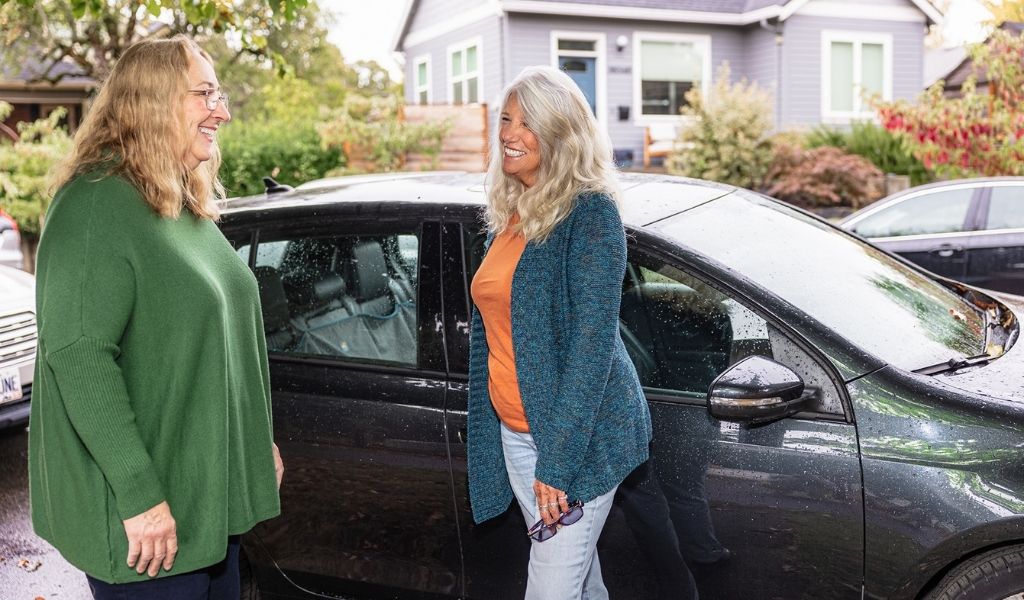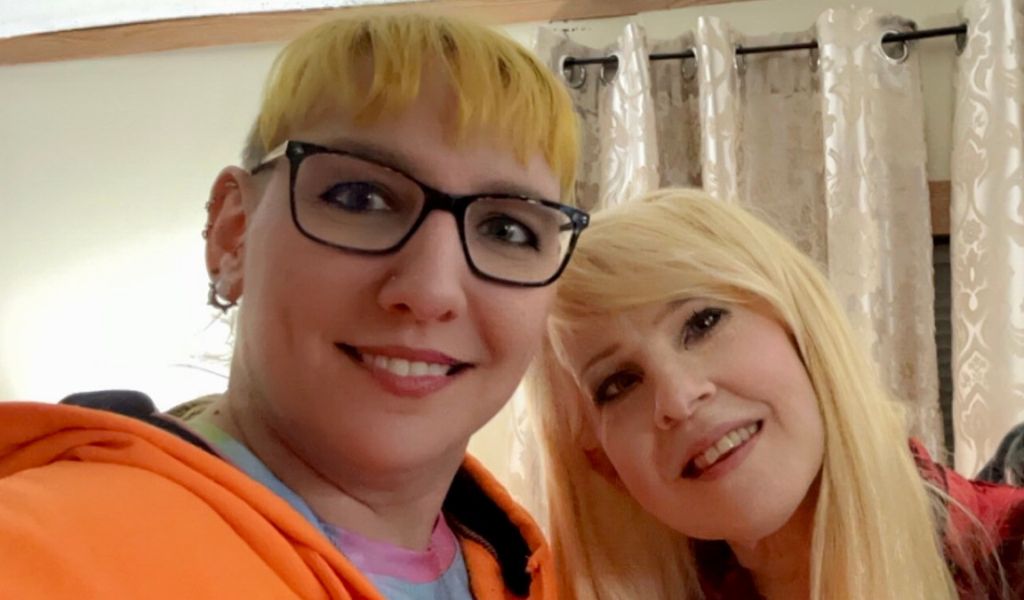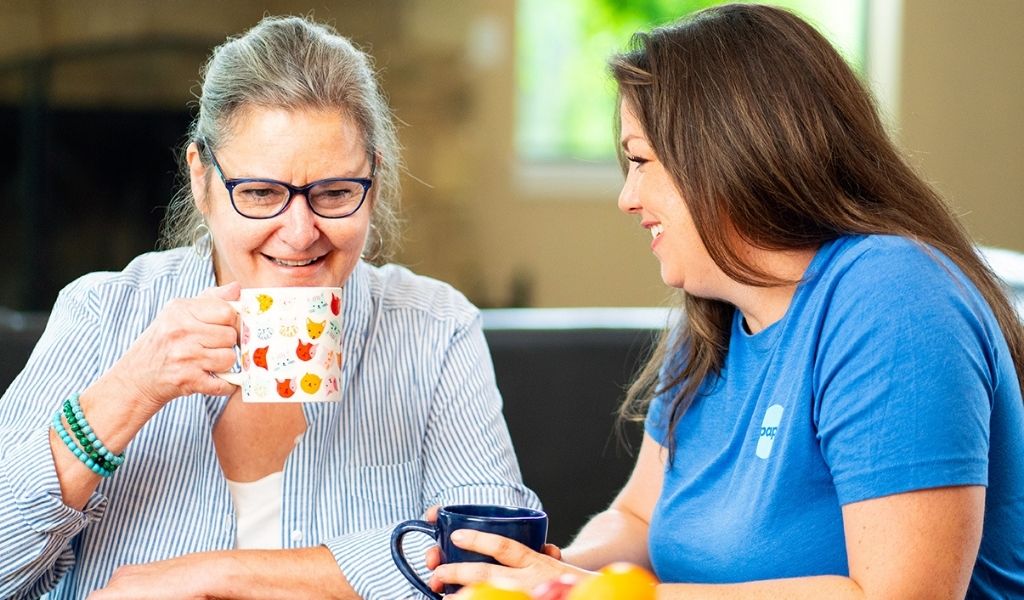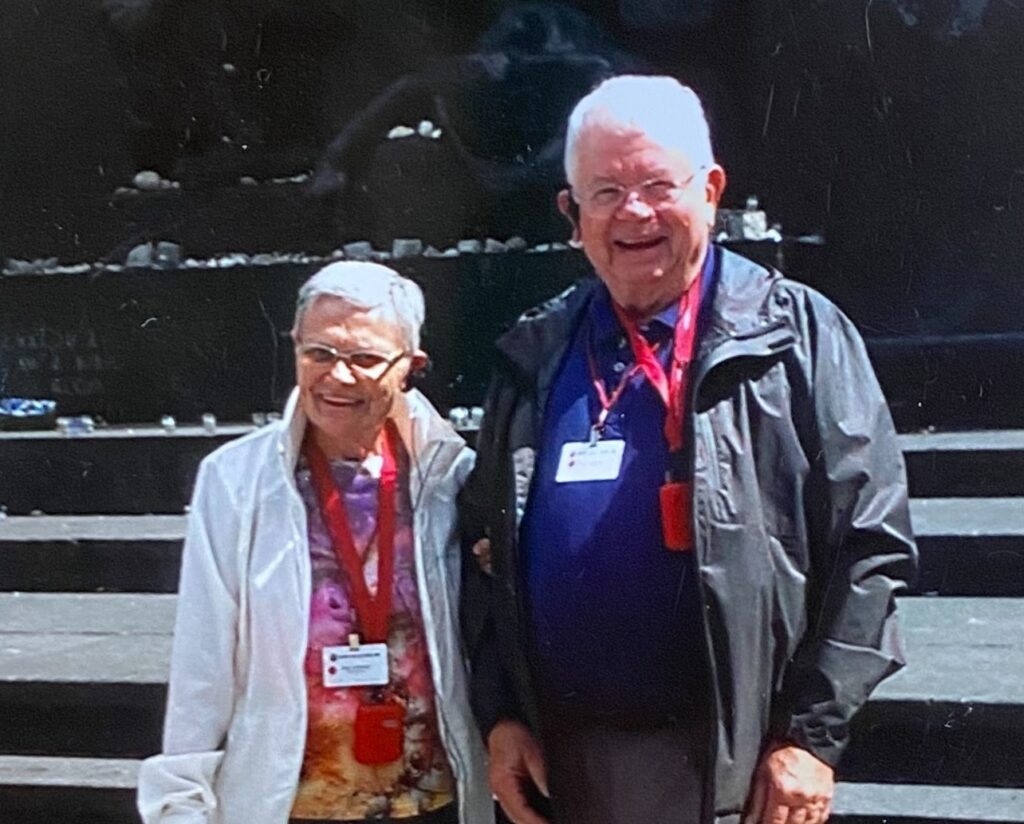
Dale, 82, has been married to Joan for more than 60 years. They’ve lived in many different places throughout their lives. But since Joan developed dementia a little over five years ago, they’ve stayed put. Now, they spend almost all of their time at home in their retirement community outside of Grand Rapids, Michigan.
Dale never leaves Joan alone. “If I go out, she comes with me,” he says.
Caregivers like Dale need support in order to support their loved ones. At Papa, we’re committed to making that support accessible.
The unseen acts—and cost—of caregiving
$2.5-3.5 trillion. That is the estimated value of unpaid care labor in the U.S., according to a May 2022 report by Boston Consulting Group. The caregiver load is heavier than most of us can imagine.
On average, caregivers spend six days a month feeding, dressing, grooming, bathing, and walking the person they care for. They spend more than double that (13 days) commuting, cleaning, shopping, cooking, doing laundry, and administering medication. An additional 13 hours each month are spent on research, paperwork, finances, and scheduling appointments. And an average of five hours every day spent caregiving is devoted to providing companionship or supervision.
Many caregivers of older adults are older adults themselves. The average caregiver looking after a person 65 years or older is 63. One-third of them report being in fair to poor health.
We need to care for our caregivers—those individuals who selflessly provide physical and emotional support to others day in and day out. And as our aging population continues to rise, this support will become even more critical.

Meet Papa Pal Yvonne
Yvonne, who is in her late 50s, has spent many years as a caregiver. She’s worked in a nursing home, assisted living, home health, and even a daycare.
Yvonne needed her own caregiver in recent years, though, as she recovered from surgeries on her hip and stomach. She became depressed during her recovery, as she spent months away from friends. She talked to her health plan and realized she qualified for a Papa Pal. Yvonne’s Pals supported her throughout her recovery, from helping with laundry and getting around the house to just being there to talk for a couple of hours.
Yvonne knew she wanted to continue helping others, but the physical requirements of being a home health aide, like lifting and bathing, were too much for her. She got to talking to one of her Papa Pals about their job and thought, “I could do that when I get better.”
So that’s exactly what she did. Yvonne has been both Joan’s and Dale’s Papa Pal for eight months now. “I love it,” she says.
Joan feels comfortable, safe, and happy with Yvonne
“When I first started,” Yvonne says, “I told Dale it would be good to keep the same person each week. I knew this because of my experience working with people with dementia. So far, Joan recognizes me every time I come.”
Dale says Joan gets a big grin on her face every time he tells her Yvonne is coming over. They meet every Thursday morning for three hours, and Dale uses the time to go grocery shopping, run errands, and enjoy some independence.
Yvonne will ask Joan if she wants to listen to music, and she always smiles and says yes. Yvonne has gotten to know her musical taste and can tell when she doesn’t like something. Classical music is her favorite, and she likes when Yvonne sings the words to the songs she knows.
Yvonne talks to Joan while she finishes her breakfast. Sometimes they talk about the music while they listen. Yvonne does simple things for Joan. When she has to go to the bathroom, Yvonne reminds her where it is. When she’s tired and wants to take a nap, Yvonne walks her to her bed and tells her, “Have a good nap. I’ll be right out here if you need me.” And she checks on her.
Yvonne recalled one special day when Joan’s memory was sharper than usual. “She shared a lot of stories with me that day. I could ask her about her past, and she would tell me all about it. And she didn’t want to lie down, which was unusual, so we spent more time together and watched TV.”
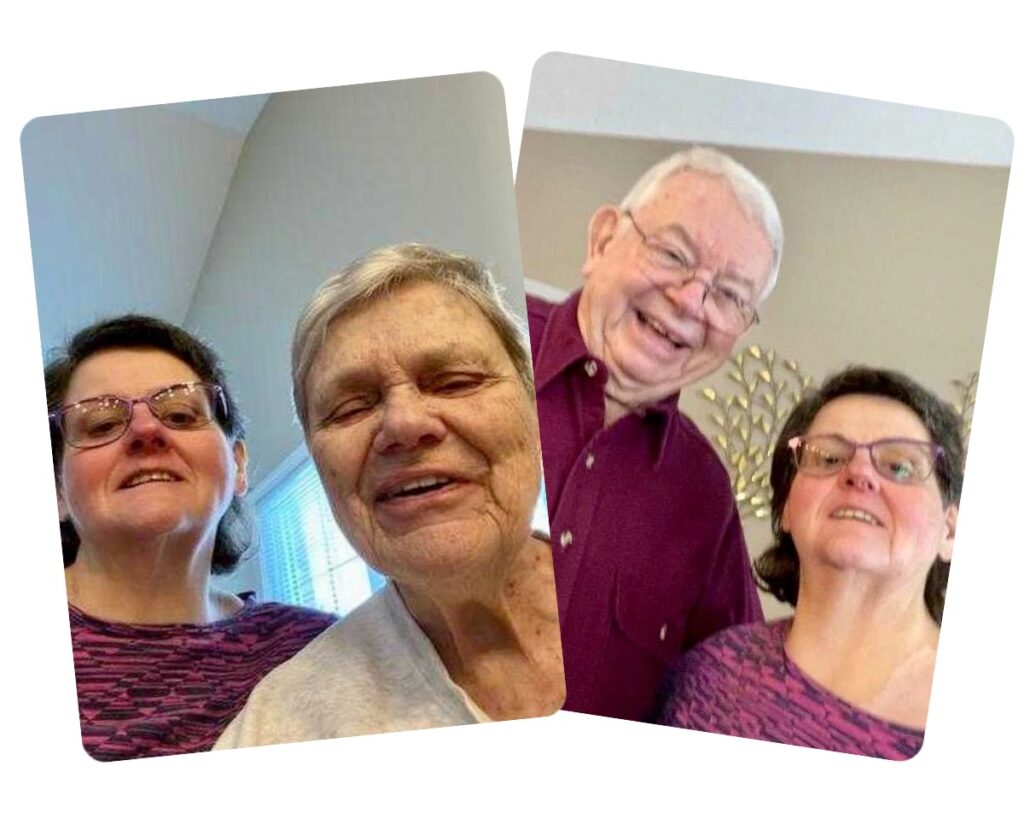
What Yvonne’s support means for Dale
It means so much to Dale that Joan feels comfortable and safe with Yvonne. Rather than feeling like he’s “dumping her off to someone,” he knows Joan is happy when Yvonne visits. She may not always know which day is Thursday, but when Dale tells her Yvonne is coming, she gets excited.
“She knows these visits are important for me too,” he says.
Since Dale never leaves Joan alone, he’s caregiving 24/7, and that can take a toll. Those three hours every Thursday take the pressure off a little and give him some much-needed freedom.
Yvonne says she can see the tiredness in Dale’s face sometimes. Some nights, Joan doesn’t sleep, which means Dale doesn’t sleep either. Getting that brief time alone on Thursday mornings helps him recuperate and recharge. And when he gets back, he and Yvonne will take a little time to chat, too.
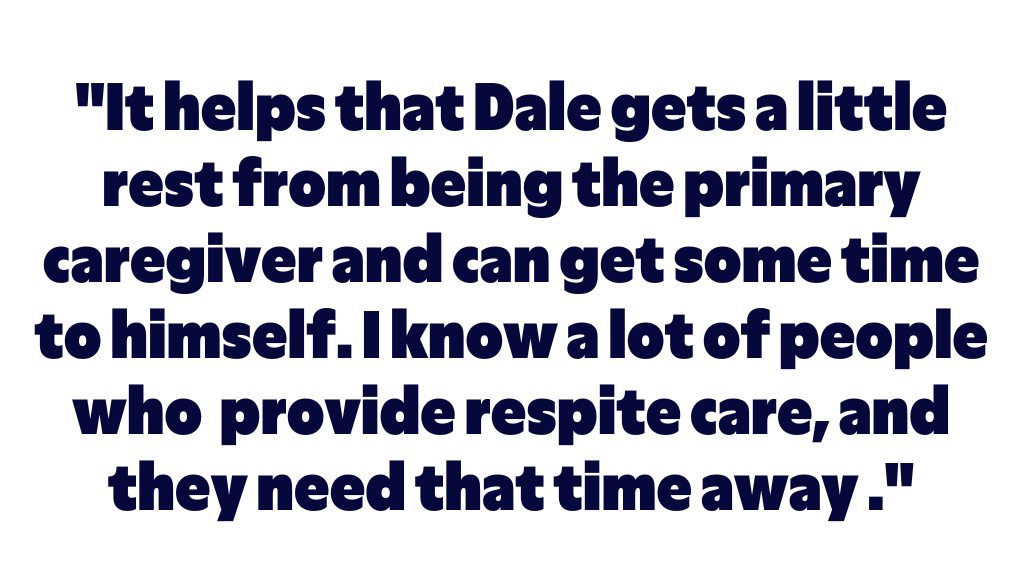
Dale is glad Joan’s dementia hasn’t progressed to the point where he and Yvonne can’t have conversations with her. She can still express her needs for the most part. “And Yvonne is sensitive to Joan’s needs,” he says. “She listens.” That means a lot to him.
Finding out that both he and Joan were eligible for Papa was a pleasant surprise for Dale and a big reason they’re sticking with their current health plan. He’s grateful for the help.
When caregivers support each other
“Yvonne is a nice and pleasant person,” Dale says. “And she’s always thinking of ways to be helpful. She’ll notice there’s something that needs to be done—small things, like the floors need to be swept—and she just does it. I really appreciate that.”
He and Yvonne work with each other when scheduling conflicts arise. “What’s nice is that Yvonne is flexible,” he says. “We try to be flexible too. It’s hard to have everything work perfectly week after week.” They make a good team, supporting each other as they support Joan.
“We understand each other’s needs,” Dale says.
And isn’t that what it’s all about? Dale and Yvonne show us how we must work together if we are to create a world where no one has to go it alone—caregivers included.
